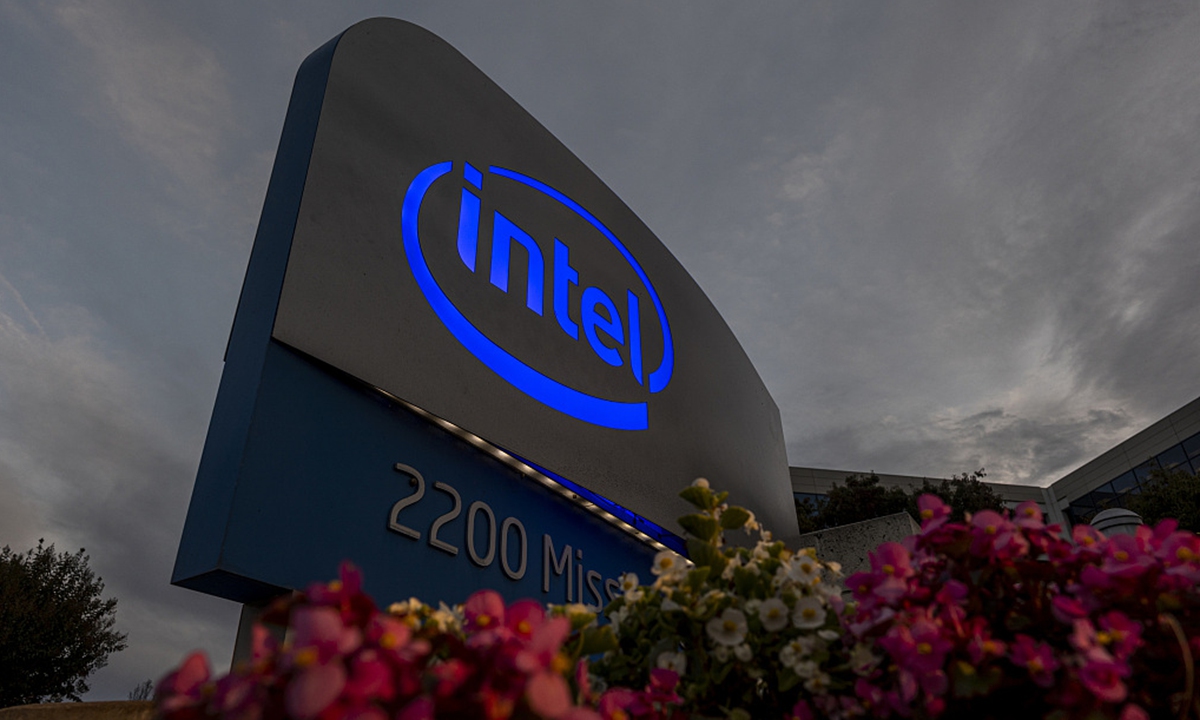COMMENTS / EXPERT ASSESSMENT
Biz Quick Take: China's decision on SK Hynix-Intel deal a reminder to US chip firm

Signage at the entrance to the Intel headquarters in Santa Clara, California, US, on October 19, 2021. Photo: VCG
China's State Administration for Market Regulation (SAMR) on Wednesday approved South Korean chip firm SK Hynix Inc's $9 billion buyout deal with US chip giant Intel with six specific conditions attached, following an antitrust review. With approvals from all eight relevant countries, SK Hynix is now poised to take over Intel's NAND SSD memory chip business and its assets in Dalian, Northeast China's Liaoning Province.
The announcement came just a day after it was revealed that Intel issued a boycott of products from Northwest China's Xinjiang Uygur Autonomous Region, citing anti-China US politicians on "forced labor" in the region. That has put Intel in a unique and delicate position as it is the only US tech giant that has joined Washington's arbitrary crackdown on Xinjiang businesses in such a high profile. It also naturally put the firm under serious fire in the Chinese market.
It is not clear what prompted Intel to take action at this particular time. There is no doubt that Intel and many other US businesses are facing intensifying pressure from increasingly unhinged anti-China US lawmakers. Intel also is motivated to please those lawmakers, as the US Congress is considering a $52 billion semiconductor production bill that could benefit the firm immensely.
However, what is clear is that executives at Intel concluded that it needs to take an action that they knew would most certainly offend China. They appear to have concluded that getting subsidies from the US government is more important and worthwhile than showing minimum respect for its largest overseas source of revenue. It is also clear that the company is sufficiently confident that, given its advanced technologies in the chip sector, there is nothing China can do to hurt its businesses. The arrogance is palpable.
While the SAMR's announcement on Wednesday is most likely unrelated to the growing indignation among the Chinese public toward Intel, the timing is perfect. The approval, which comes after a thorough antitrust review and was granted with six specific conditions attached, highlighted the Chinese regulator's professionalism in dealing with global deals that could harm Chinese interests. But it could also serve as a friendly reminder to Intel and others that the Chinese market has a say in global business deals and they should not think that they can undermine China's interests without any consequence.
That is not to suggest that there might be actions against Intel for undermining China's interests but we certainly hope that Intel and other global businesses will respect the Chinese market and Chinese consumers as they would in any other country. Otherwise, they should be prepared for intense scrutiny and anger from the Chinese public coming their way.
